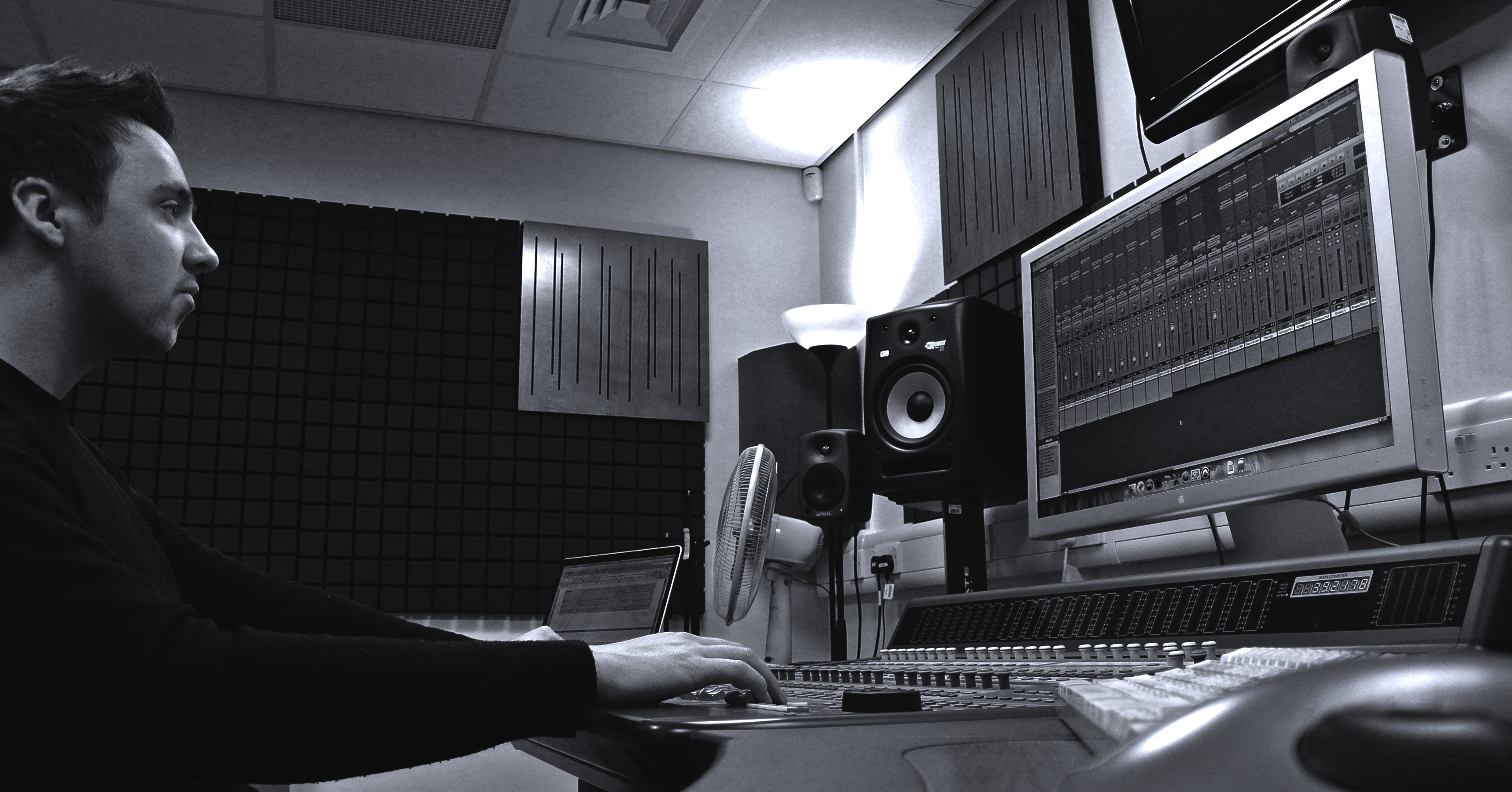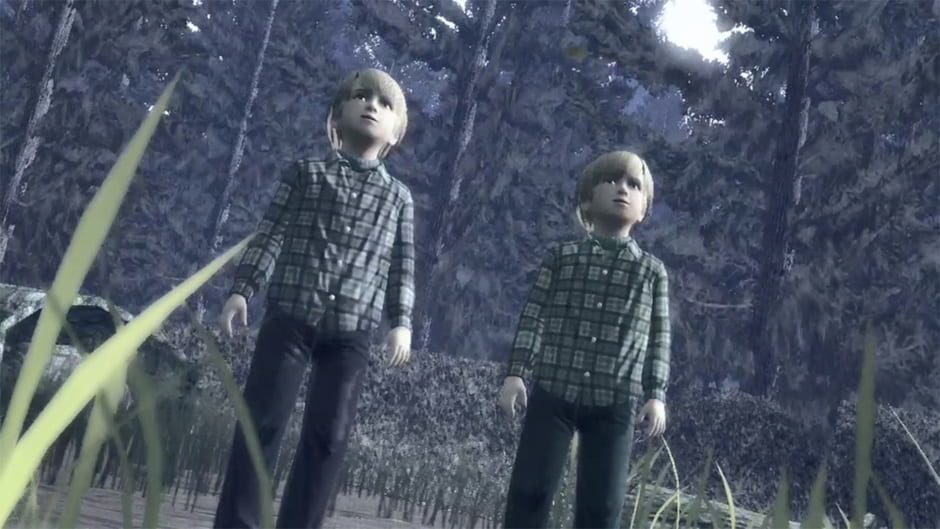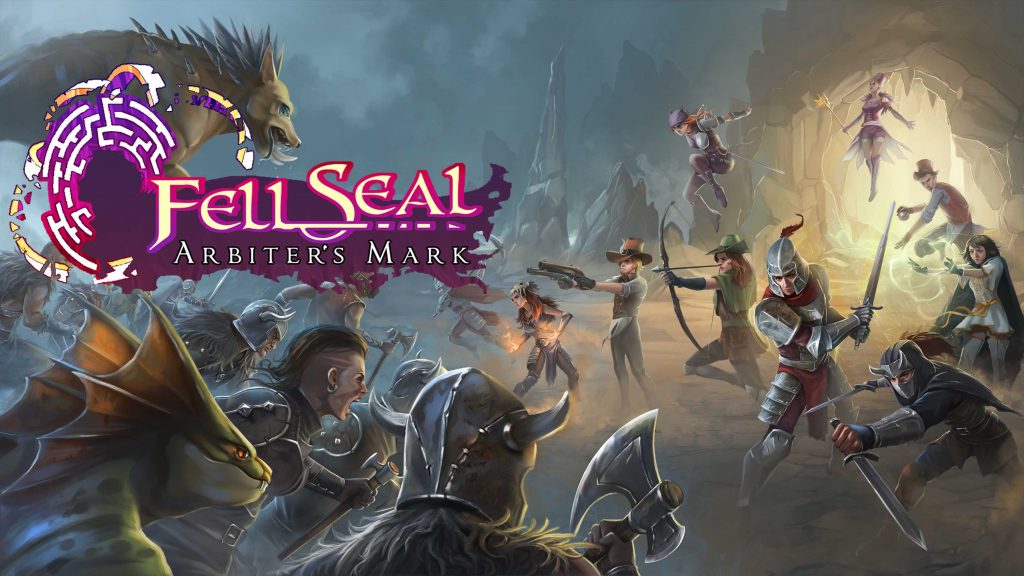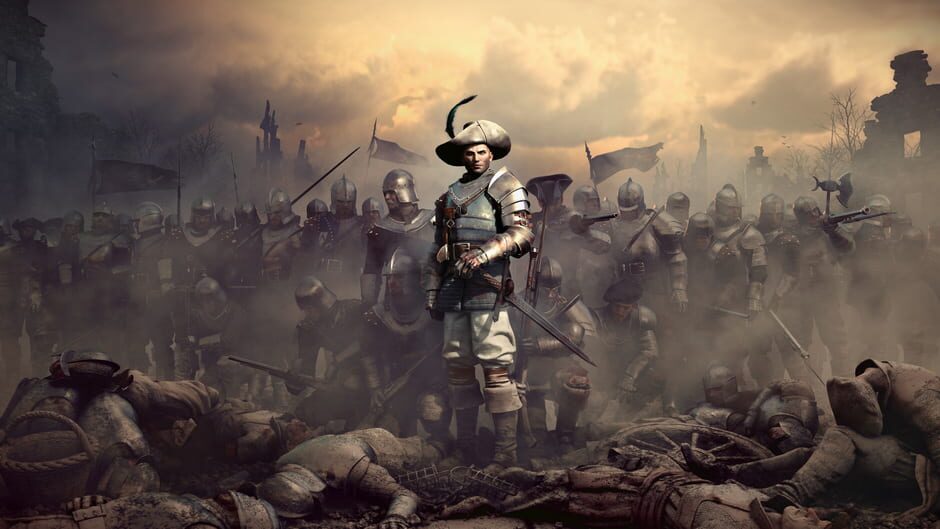It’s been four years to the day since I finished the critically acclaimed platformer Thomas Was Alone. It may seem strange to revisit Mike Bithell’s indie darling so many years later but as time has passed, TWA has done something that is increasingly rare in the medium of video games: it’s aged beautifully. The thematic evolution of Thomas, an artificial intelligence in the midst of becoming self aware, is echoed and reinforced in almost every single element within the game. Through gameplay and level design, we as the player learn alongside Thomas, solving problems and overcoming obstacles on a combined journey to freedom. And nowhere is this journey more evident and profound than through the incredible score composed by David Housden.
After completing the game, I reached out to David hoping to get a better insight on his artistic process and his work on TWA. David was very kind and I was lucky enough to have him answer some questions which are posted in their entirety below.

How’s life changed since your score for TWA was released? Is it strange having your work recognized on such a large scale and with such praise?
Most significantly I suppose, I actually have money now.. Lol. Thomas’ success has put me in a very fortunate position, in that I’m able to be quite selective with the projects I take on now. In 2012 I think I worked on 10 games over the course of the year, more or less saying yes to everything which dropped on my lap. Whereas last year I worked on 3 and focused more on writing cues for production libraries and broadening out into other areas of media. It’s also provided me with a platform to build on. Thomas is my first and last mainstream hit, so I think a lot will be riding on the success of my second big soundtrack release. I had thought it might be Volume (Mike’s second game) but it’s looking more likely that one of my other projects will be releasing sooner now, so it’s quite scary really. The tricky second album, where you either prove your initial success wasn’t a fluke and catapult into the next echelon of composers, or you’re met with indifference and regress into obscurity. Exciting times!
What’s your background in music?
I had a very musical upbringing. My great grandfather had a drumkit and an organ at his house, which I spent hours on as a child. My grandfather was a concert violinist and my grandmother was a harpist and pianist. My dad played the violin, guitar, piano and sang in various choirs, so it was impossible to grow up around all of that without some of it rubbing off on you. I had piano lessons as a child but didn’t enjoy them at all and managed to worm out of it around the age of 11. Then I finally got my wish when I started high school and played the drums for a few years. However, it wasn’t until I was 13 or 14 that I discovered rock and roll and developed a love affair with the guitar. I was self taught but could read tab and got myself to a reasonable standard. I played in all sorts of bands over the years and went on to study music at college. I formed my most ‘successful’ band here and we played and toured together for 3 years with a few small scale releases and a couple of videos on TV, but we broke up whilst I was studying my third year of music production at university, and it was then that I started to throw myself into composing for media. I got my first job with Mike shortly after graduating and the rest has snowballed from there.
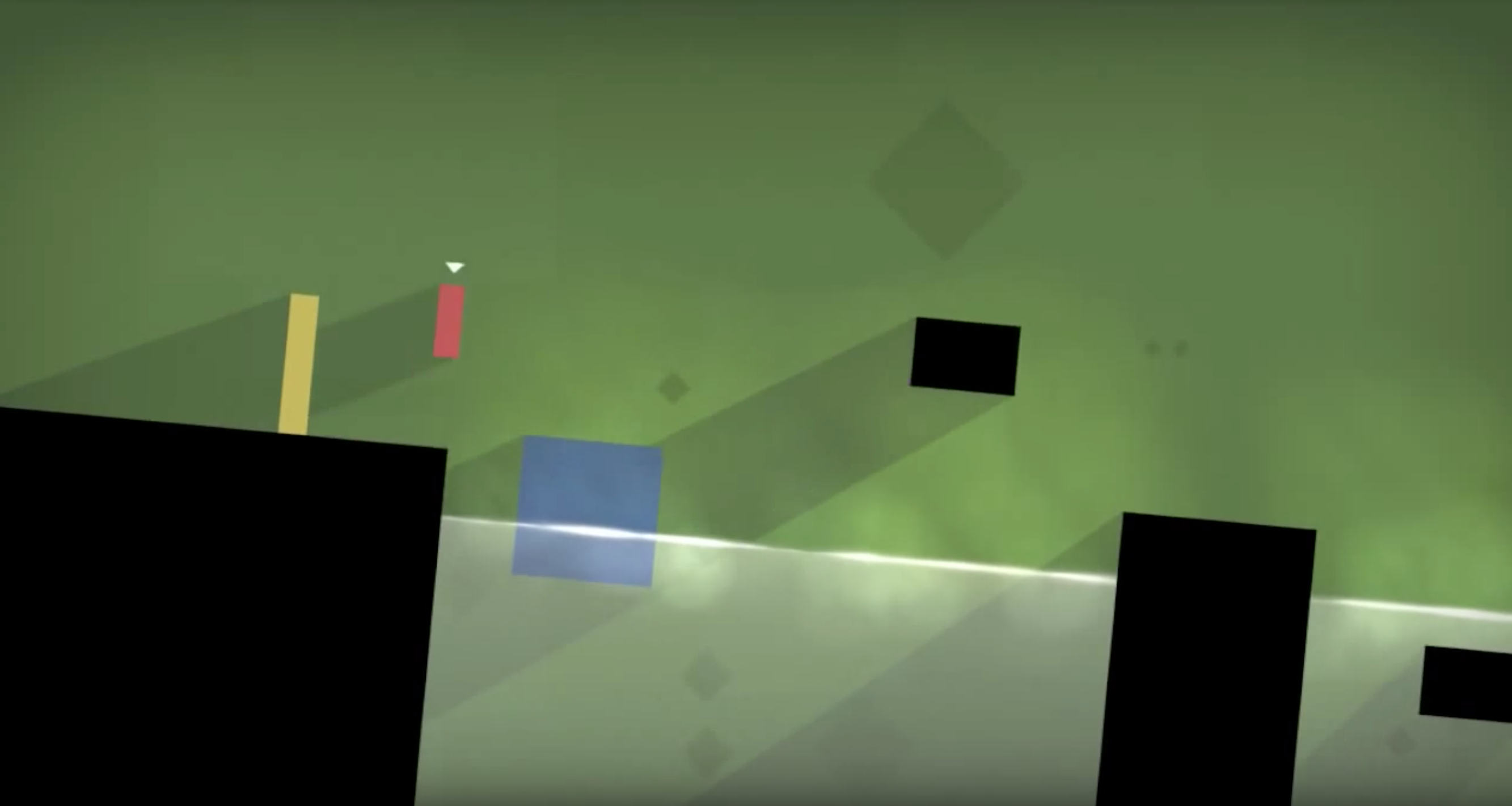
How did you first start working with Mike? What were his goals for the score and how did you finally develop the sound he was looking for?
I was put in touch with Mike through a friend I met in the band days, who was a colleague of his at Bossa studios. He knew I was desperate to get into game music and very kindly set up an introduction for me with Mike, who was working on a hobby project in his spare time. I wrote him a demo which went on to become the title theme for Thomas Was Alone and we collaborated on the rest of the soundtrack from that fateful meeting.
I’m not too sure what his goals for the score were, he was creating the entire game by himself and I honestly think he had bigger fish to fry. But Mike is one of the few developers I’ve been lucky enough to work with who truly appreciates the value of music. He knows that the soundtrack has the power to make a bad game good and a good game exceptional. And also vice versa. He’s a big fan of music himself and had collated a list of all sorts of influences; he’d also decided that he wanted the score to be procedural to avoid monotony for the player. But in terms of how the music supported the game or the affect it had on the player, I don’t really remember discussing this at any great length. He’d written a list of bullet points describing the key themes and emotions, and the story progression for each stage (10 in total) and I did my best to ensure that the music mirrored this as well as hopefully surpassing what he had envisioned for it.
As for developing the sound he was looking for, well, I didn’t! I wrote something else entirely and luckily he preferred that direction to the one he initially had planned. Originally he intended for the score to be more indicative of what you might expect from a 2D platform game detailing the journey of various computer AI, with lots of electronic elements and glitch effects. I felt it was important to give the game a sonic identity of its own, and more to the point I just don’t have any passion for that sort of music and I knew that I’d struggle to get any really emotion out of chiptune/EDM as a genre. So instead I took a risk and wrote something which I felt would fit, ignoring the aesthetics and concentrating instead on the subtext and underlying themes and emotions of the characters. I sprinkled some 8bit effects in and included some glitch textures and such to help tie it in to the environment more, but the majority of the track was very organic. Luckily he loved it and the rest of the music spiraled from this style. As I grew in confidence, I began to incorporate more electronic sounds and synths in. Sometimes just to break things up a bit, there’s one track in particular towards the end called ‘Escape’ which I’m really pleased with the balance of.
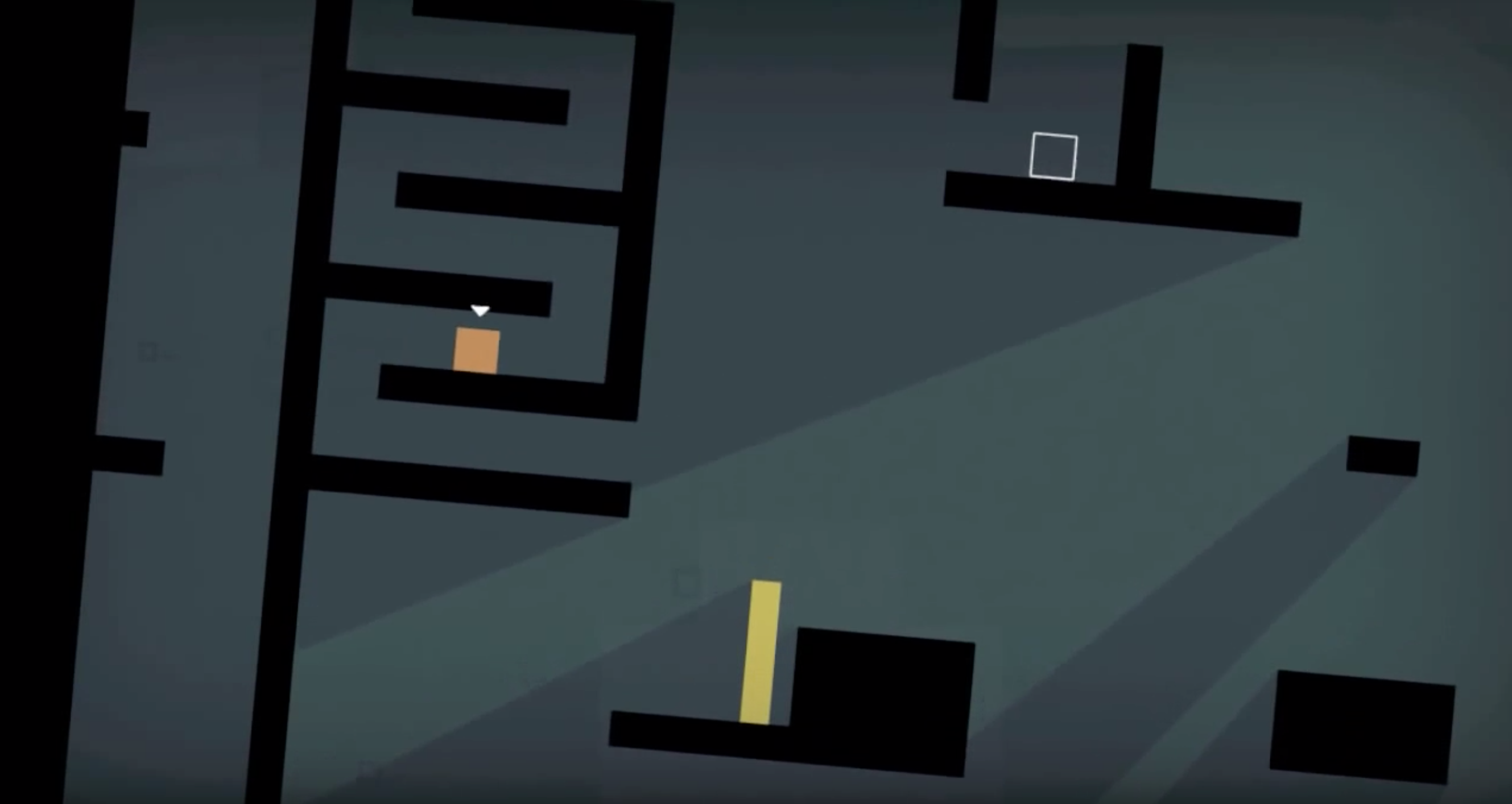
Was it hard mixing more traditional instruments with digital effects?
Haha I touched on this above. Yes it was horrendously hard for me, because I had no experience whatsoever in writing for any form of digital music, dance, electro, trance, house, d&b, hip-hop, or anything which required any form of knowledge of synths or electronic music. It was hard but ultimately my weakness became a strength, because I had to rely more on traditional instrumentation, and just throw in the odd bit of synth where I felt comfortable. Whereas someone who really knew what they were doing could easily have gone out and written an entire soundtrack comprised solely of electronic elements, but it wouldn’t have been as unique and the chances are it wouldn’t have had the same emotional impact I was able to provide by basing my pieces around piano and strings.
Who is your favorite modern composer? What are some of your favorite video game scores that you’ve heard over the years?
My favourite modern composer? God, I don’t know. There are people in indie games who’s work is phenomenal such as Jess Curry, Chris Christodoulou, and Austin Wintory. On a larger scale I absolutely love Jesper Kyd’s work on the AC series, it’s a real shame they’ve started outsourcing to the Hollywood guys for that now. Outside of games, Max Richter writes some of the most painfully emotional music I’ve ever heard, to this end Einaudi is also a constant source of inspiration for me. My favourite music is post-rock though and Hammock, Explosions in the Sky and Mono are a few examples of my favourite bands in this genre. The majority of my work is based around combining those cinematic soundscapes and ambiences, with more classical instrumentation and my own personal influences.

My favorite element of your score is how the music perfectly captured the thematic progression of the game. The score constantly evolved and used pieces of music from every level to finally reach a powerful crescendo at the end alongside the character’s development. Was it hard to integrate what the characters were going through into your score?
Thanks very much. I touched on this earlier, but no I actually found it the most natural thing in the world. For me music is expression of emotion. It touches us and speaks to us on a level which words can’t, so to work on a game where the sole brief was to capsulate and enhance specific emotions and feelings for the player, it was a joy to write for. Even though a lot of the pieces deal with some quite harrowing issues.
I didn’t write it chronologically, a lot of the music would be based on my mood on any given day. I’d often wake up and pick a stage to write for depending on how I was feeling at the time. Often I’d sit at the piano with no real idea in mind and just start playing around. Gradually a piece would develop, and I’d think “This sounds a bit mysterious, this could work well for stage 4 (when strange things begin to happen to the environment)”. A lot of the pieces would develop like that. When it got down to the last few though, it was a case of sitting down, picking one and just doing my best to write something which represented that feeling.
If you could give any advice to people looking to break into composing for games, what would it be?
You need to be really, really good to stand a chance so my best advice would be to focus on honing your craft and getting a solid musical education. I’m not saying you nee to go to university, my qualifications haven’t helped me get a single job in the industry, however the things I learned over the course of my degree definitely have. I can honestly say I wouldn’t be doing what I’m doing now if it wasn’t for my university course. The most important thing is to be active in the industry and to build contacts though, this is also the hardest thing to do when you’re just starting out, but it’s another reason I’d recommend studying, because you’ll be able to do collaborative projects with student game designers and film makers. If you do your best work on every opportunity you’re given, then it’s just a matter of time until someone you work with gets an awesome gig and they’ll remember you from when you worked together in the early days if you developed a good relationship and did great work. A lot of it comes down to luck, but if you’ve worked hard at being a great musician and you can produce brilliant music, all you need to do is keep sourcing out these student developers and amateur projects, maybe going to games events as well and asking around. The opportunities are there. It may take a long time to start making money from it, but if you persevere and you’re good enough I honestly believe it will just be a matter or time. There’s a lot of competition but there’s also an awful lot of dreadful composers out there. There’s not ‘that’ much competition in terms of musicians who are truly masters of their trade and can consistently write and produce beautiful pieces of music which elevate the games they work on to a higher level. I’m not suggesting that I consider myself to be one of them, but it’s where I aspire to be, and it’s what anyone really serious about this needs to aim for as well.

Since this interview, Housden has gone on to compose for Mike Bithell’s follow up game Volume and Toxic Cube’s Q.U.B.E 2. Both of these games continue to showcase Housden’s natural ability, infusing emotional gravitas upon the player’s experience in the same vein as his work on TWA. Anyone interested in more of David’s work can find it on iTunes or Bandcamp and for all of the latest updates, be sure to check him out on Twitter @DavidJHousden.
